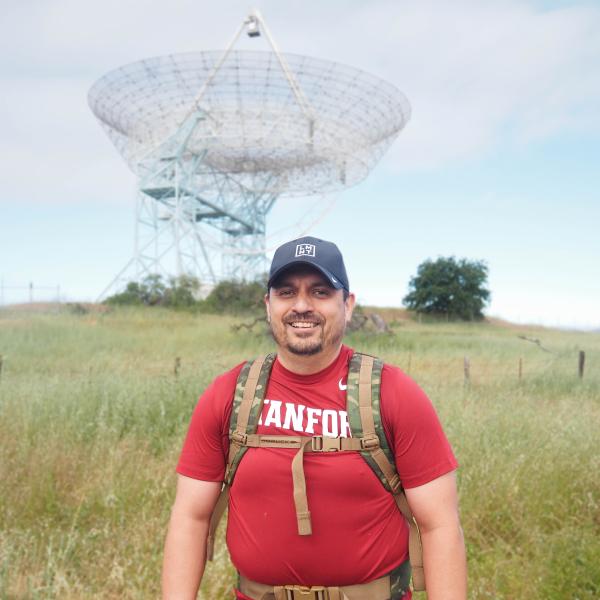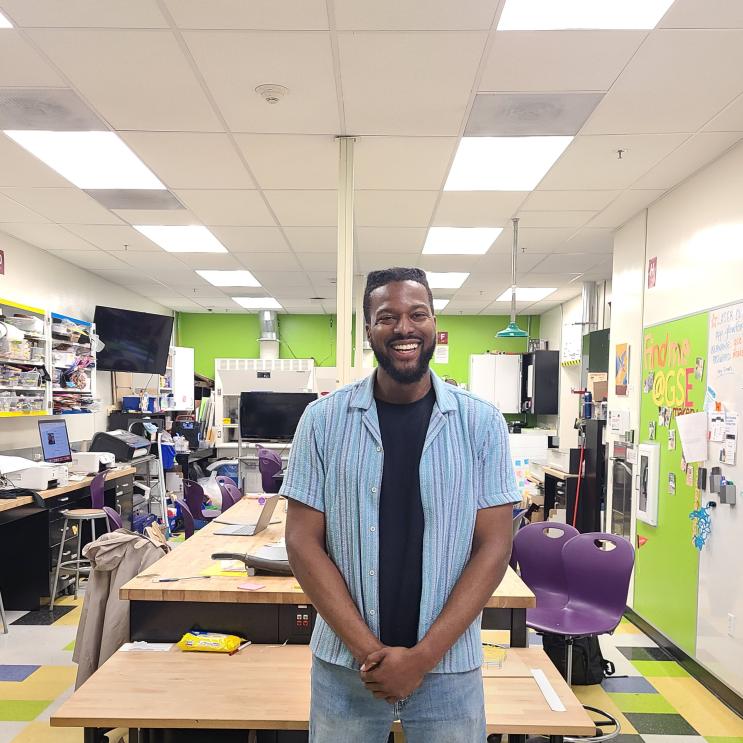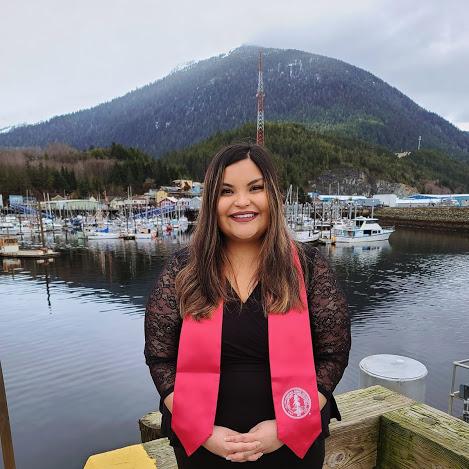
Dallas Gilmore
When Dallas Gilmore came to Stanford as an undergraduate in 1996, he tried to do things on his own. And while he felt academically prepared to succeed, he says he failed to lean into the community support around him, which led to him leaving that first year.
“Here in these big institutions, if you don’t tap into your resources, you get swallowed up quick,” said Gilmore, who is Navajo and grew up on a reservation in Kayenta, Arizona.
After leaving Stanford, Gilmore joined a church mission team for two years before getting his bachelor’s degree from Brigham Young University (BYU) in Utah, where he joined the Army Reserve Officers' Training Corps (ROTC). Despite finding purpose in ROTC, Gilmore said he struggled to belong at BYU, making community a priority when later looking for graduate programs.
Now a doctoral student at the GSE focused on the economics of education, Gilmore has gone beyond finding community for himself: He’s created a space for other GSE students to meet and support one another while “rucking,” hiking or running with weighted backpacks.
“When you’re doing a PhD, the focus is on your intellect,” said Gilmore, who leads fellow students on weekly rucks. “Many times the spiritual, emotional, and physical parts of you fall by the wayside just because of the demands of what you’re doing. I can’t let that happen to myself – but also, as you get to know the people in your cohort, you really start to get invested in their lives.”
Learning to understand where people are coming from is a key leadership skill, said Gilmore, who plans to return to New York after earning his doctorate to work for the U.S. Military Academy at West Point.
“One of the most important qualities of a good leader in education, or any other setting, is the ability to have empathy for the people that you’re leading,” he said. “It’s the relationships that you build with them that determine how effective you are in accomplishing your mission or goal.”
Photo: Joleen Richards | Words: Olivia Peterkin



